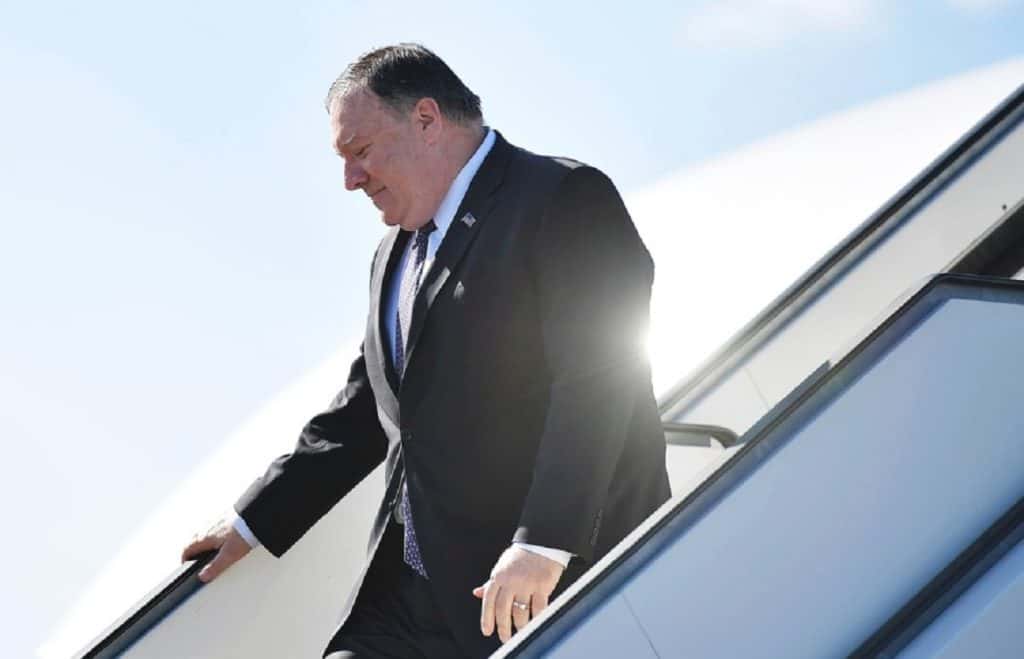By Denis Korkodinov
On February 1, 2020, US Secretary of State Michael Pompeo will pay an official visit to Belarus. Afterwards, the head of the US Foreign Ministry has in program to visit also Kazakhstan and Uzbekistan. Thus, the White House administration announces a new phase of its activity in the East European and Central Asian, thereby creating the basis for increasing pressure on Russia.
In January 2019, then Assistant Secretary of State for European and Eurasian Affairs A. Wess Mitchell emphasized Washington’s special attitude towards Belarus, calling it a country that is “a bulwark against Russian neo-imperialism.” However, a significant obstacle to American interests was the significant Russian influence on President of Belarus Alexander Lukashenko, who, under pressure from Moscow, was forced to maintain a certain distance in relations with the United States.
Nevertheless, the processes of constitutional reforms and the formation of a new Russian government initiated by Russian President Vladimir Putin, as a result of which Moscow’s positions were significantly weakened, served as a definite signal for the White House administration to resume dialogue with Minsk. The participation of Kazakhstan and Uzbekistan in this transaction, in this case, is a concomitant direction, testifying to the US desire to create a powerful anti-Russian bloc in Central Asia.
The reason for strengthening US-Belarus relations was the disagreement between Moscow and Minsk in the field of energy and oil supplies. President of Belarus was extremely unhappy that Russia had inflated the cost of energy resources, while the Kremlin was not ready to provide Belarusian energy transit at dumping prices. Amid these disagreements, the United States suspended some elements of the regime of restrictive measures against Belarus.
In particular, for energy companies that are considering opportunities in Eastern Europe, assistance allows them to conclude deals with the State Oil and Chemistry Concern Belneftekhim, one of the largest group of companies in Belarus. This decision found a positive response from the Belarusian leader Alexander Lukashenko, who hastened to establish close cooperation with Washington at all costs to the detriment of Russian interests. To this end, he lashed out at Moscow, threatening to break the political union.
The United States proceeds from the view that Belarus has a great interest in limiting Russia’s desire to expand its influence in Eastern Europe. Moreover, the issue of observing the sovereignty of Belarus in the negotiation process with Washington is central, given Russia’s recently announced plans to create a union state with Belarus, which Alexander Lukashenko clearly resists.
For this reason, the upcoming visit of Michael Pompeo to Minsk represents a new stage in exerting pressure on Moscow and an attempt to finally agree on what measures Belarus is ready to take with a view to exerting pressure on the Kremlin. This information was indirectly confirmed in a recent interview for the Belarusian press by retired U.S. lieutenant general Ben Hodges, who previously commanded US forces in Iraq and Europe, and currently holds a key position at the Washington-based Center for European Policy Analysis (CEPA).
The formal goal of the US Secretary of State’s visit to Minsk is to restore and normalize relations, as well as to resume the activities of the US embassy in Belarus. In addition, it is expected that on February 1, 2020, the parties can conclude a number of agreements in the field of trade, energy and the military sphere.
Of particular interest to the American administration is the nuclear power plant in Ostrovets. Among other things, Washington intends to open a logistics center in Belarus to control goods passing through Eastern Europe.
Belarus is of military interest to the United States. This, in particular, is evidenced by the fact that, as part of the Defender of Europe 2020 exercises, armored vehicles of the 1st Division of the US Armed Forces (30 Abrams tanks and 12 infantry fighting vehicles) are based on the Lithuanian-Belarusian border until the spring of 2020. In addition, the interest shown to Minsk by the US military command in Iraq and Europe suggests that relations between the White House administration and Alexander Lukashenko may suggest the use of Belarusian territory as a bridgehead for US military missions.
Michael Pompeo’s Belarusian tour is of additional importance due to the constitutional reform being implemented in Russia, when the Kremlin is forced to weaken its attention at external borders, and, above all, in Eastern Europe, if this does not apply to Poland. This made it possible to create a whole complex of camps in Belarus for representatives of the Russian non-systemic opposition, where they are currently training for the subsequent implementation of the acquired knowledge and skills in Russia under the pretext of protecting the country’s Basic Law.
In order to exert pressure on Russia, Washington intends to use Alexander Lukashenko’s neglect of the process of the annexation of Crimea to Russia and its disagreement on energy prices. In turn, Washington guarantees to reduce the economic dependence of Minsk from Moscow, providing significant investments and benefits in the international arena. Belarus seems ready for such a scenario, in connection with which its leader considers cooperation with the United States as a priority area of its foreign policy in the next 5-10 years. Alexander Lukashenko provides American diplomats and businessmen with almost complete carte blanche in Belarus.
Moscow knows about the intentions of the Belarusian head of state to create an alliance with the United States, but, apparently, does not take this intention quite seriously, given the fact that Alexander Lukashenko repeatedly publicly made claims to the Kremlin, but ultimately agreed with him. Moreover, Moscow is now extremely concerned about the internal situation, when protests can resume in the country amid constitutional reform. In this regard, Russia currently does not care about Belarus. However, the situation could change dramatically if Alexander Lukashenko continues to boycott Russian interests in Eastern Europe.
(The opinions expressed in this article are solely those of the author and do not necessarily reflect the views of World Geostrategic Insights)







